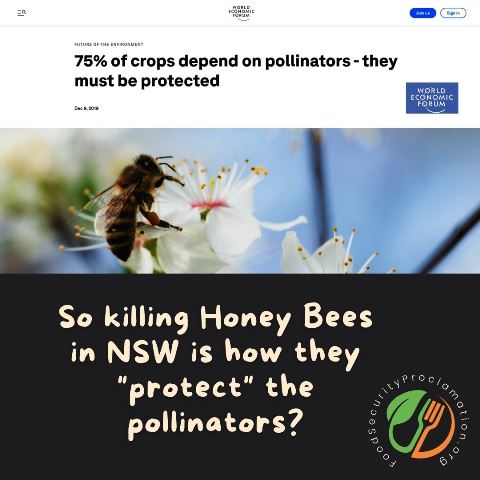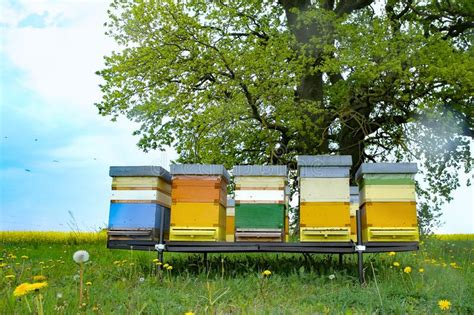Honey Bees for some reason are under attack in New South Wales. But the attack appears to be coming from an unlikely assailant.
The DPI, or Department of Primary Industries, is a department of the NSW State Government. They have issued an order stating the risk of an adverse effect on the economy and the community that arises from the introduction, presence and spread of Varroa mite within the State.
Lets not beat around the bush, the transparency and lack of evidence surrounding this Biosecurity Emergency Order #10 is telling, yet the DPI's Chief Plant Protection Officer SATENDRA KUMAR, who signed off on the 27 page Government Order dated 4 April 2023 appears unlikely to question the order, but more likely to preside over enforcement of the orders.
This is what has become of Government departments, and their obscure immigrant employees. They are not public servants, but the unquestioning, loyal, careless enforcers of dubious regulations, or in this case "orders" that are not supported by the farmers as you will see in the video. Considering the ultimately important function and role that Bees play in the food chain, this reckless and unsubstantiated destruction of innocent Bees is an attack on food security.
Here is the DPI notation which spells it out:
Under the Act, Varroa mite is prohibited matter throughout the State. There is a risk that Varroa mite is present in feral bee colonies. Section 30 of the Act imposes a biosecurity duty on the owner or person in charge of an animal or thing to immediately notify the Department if the person suspects the presence of prohibited matter in the State.
The insidious nature of this order implies that all unregistered Bee hives in NSW could be exterminated! It would seem DPI order #10 suggests "feral" Bee colonies are part of the problem and should be reported for extermination. If registration of Bee hives is the difference between colonies that a healthy and colonies that are unhealthy, one must question the logic behind this.
With a State wide mandate, how long will it take to destroy the food production capacity of regional farming operations.
The ability for farmers and growers to produce any food will be affected by the ability of nature to pollinate plants. Nature refers to the important work Bees undertake to cause most plants to produce fruit and maintain biodiversity in the natural environment. This is critical to a region that relies on a grassroots approach to food security. Below is part 21 of the biosecurity order which highlights the "enforcement" dialogue typical of the approach being taken by our elected public servants who aim to keep us all safe!
21 Destruction of bees and hives [s 50, s 51(l), s 55(1), s 91(1)(a), s 122(1)(a)]
(1) A person must make any bees and any hive in the Varroa mite eradication emergency zone of which they have care, custody or control available for destruction and removal by an authorised officer for the purposes of disposal and eradication.
(2) A person may destroy any bees of which they have care, custody or control if directed to do so by an authorised officer.
(3) An authorised officer is authorised to destroy the bees and any hive by:
(a) euthanising the bees,
(b) making the dead hive bee-proof,
(c) cleaning the location of the hive at the premises to remove the dead bees and any apiary products,
(d) burning or otherwise destroying the hive at the premises,
(e) moving the hive to another premises and then burning or otherwise destroying the hive, and
(f) any other destruction, disposal or eradication functions necessary to eradicate all hosts of Varroa mite and to prevent the survival of undetected hosts within the emergency zone

